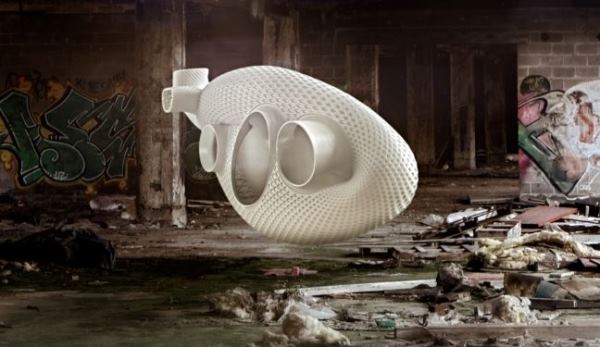Aussie native Ben West started his career as an architect, studying at Sydney's UTS before launching a career as a designer with Cox Architects.
While at Cox, West developed advanced techniques for filmmaking and architectural design on various international projects, including the 2000 Sydney Olympics.
West is now creative director and architect of VFX shop Framestore's LA office, best known for its work on Alfonso Cuaron's Gravity.
His most recent project was directing a film visualization of architect Greg Lynn's speculative redesign for Detroit's abandoned automobile factory, the Packard Plant.
The film, Center for Fulfillment, Knowledge, and Innovation, will exhibit at the US Pavilion of the Venice Architecture Biennale.
The project reimagines the plant – a 1.7 mile-long, 3.2 million square foot abandoned automobile factory – as a "factory and fulfillment center for both things and ideas."
Framestore animators, producers, and designers created the five-minute film to showcase the design and functionality of Lynn's plant, including drone deliveries, autonomous car ports and university communities.
Attendees at the Biennale will use Microsoft's augmented reality headset the HoloLens to see high-definition holograms operating on top of the 3D printed model structure.
West met Lynn, a professor at UCLA, at an Architectural Masters program at which West was a guest lecturer.
According to the Australian, "engaging with people in other industries where there is overlap is critical to the creative process. It creates huge potential for discovery.”
"As far as creativity is concerned I'm interested in convergence. Discovering ways to bring disparate ideas together to create something new and meaningful comes from having a diverse background. It enables you to draw those connections."
"Creativity and digital arts have volume. Framestore is about extending and integrating screens into the landscape so content isn't 'seen' on a screen; rather it's a part of the environment as an architectural statement."
"The challenge in making that transition is understanding the value of what defines a place while allowing it to grow.”
West described the process as "a challenge not only for Detroit but the world."
"We are facing rapid change in industry, environment and society. I'm excited to see how architecture and communication will play its part. How we work, live and interact in the course of this century is likely to be very different from today."


